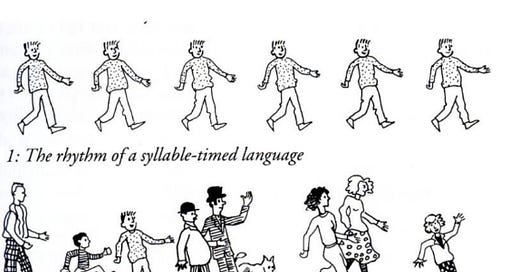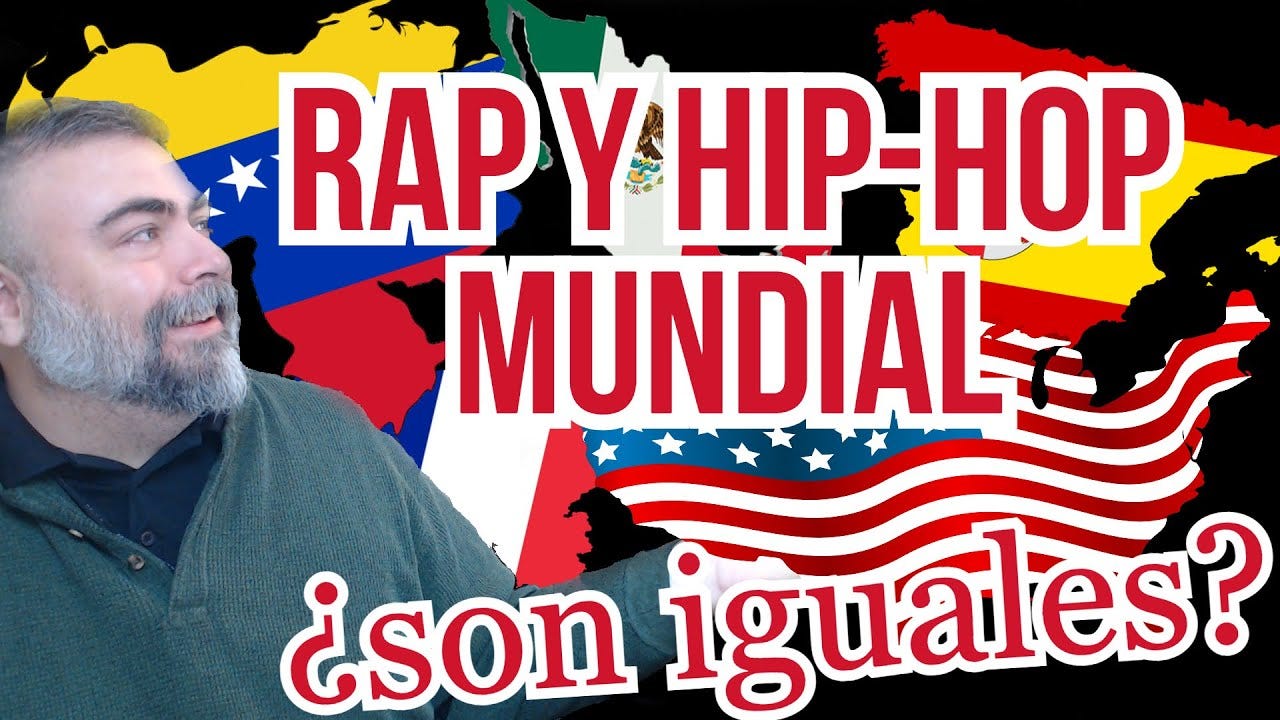Poetry and the Rhythm System of English
In which I surprise you with a mysterious part of my personal history, but then fail to surprise by mounting my usual hobby horse.
Here’s something you almost certainly didn’t know about me. For about a year, back in 2021, I had a reaction channel on YouTube. I called it Davidísimo, and it was dedicated to reacting to hip-hop in Spanish. It got amazing traction, and I discovered a lot of new-to-me beauty, and had a lot of wonderful conversations because of it. Alas, I was not able to dedicate regular time to it, so I abandoned the project after a while. (By the way, if you’d like to check out the channel, which is fully in Spanish, you can find it here.)
Meanwhile, my little circle of poets here on Substack has been having conversations about meter, rhythm, music, and periodicity. We have private conversations, of course, but our thoughts have also been put forth publicly, in attempts like Robert Charboneau’s How Poetry Figures Time, or Olivia Marstall’s thoughts on vers libre.
At certain moments during my time as a YouTuber reactor, I gave way to my true nature. For example, one of the least-viewed videos on that channel was my analysis of the chiastic structure of Canserbero’s epic track On Life as Film, Tragedy, Comedy, and Fiction. Not standard reaction channel fare, but I do note that regular viewers left a lot of comments. It was quite a community…
Anyway, recent conversations among the Twinklings (that poetry group) reminded me of a video I made for that channel, explaining Why is rap different is other languages?
In it I quickly unpacked three differences between Spanish and English: 1. word endings, 2. nature of vowels, then finally and most importantly, 3. system of rhythm.
I’ve thrown subtitles onto the video and uploaded it here. Most of the Twinklings will probably find it repetitive (i.e. I always find a way to bring it up), but I hope this will be of interest to anyone else interested in the nature and foundations of poetry.
Let me know what you think.






Fascinating. Thank you.
A great summary, thanks Joffre. I do love the mixture of syllablic and accentual in English. Each language is unique in the tools it has. French doesn't have lexical stress at all, and its cadence rises at the end of lines